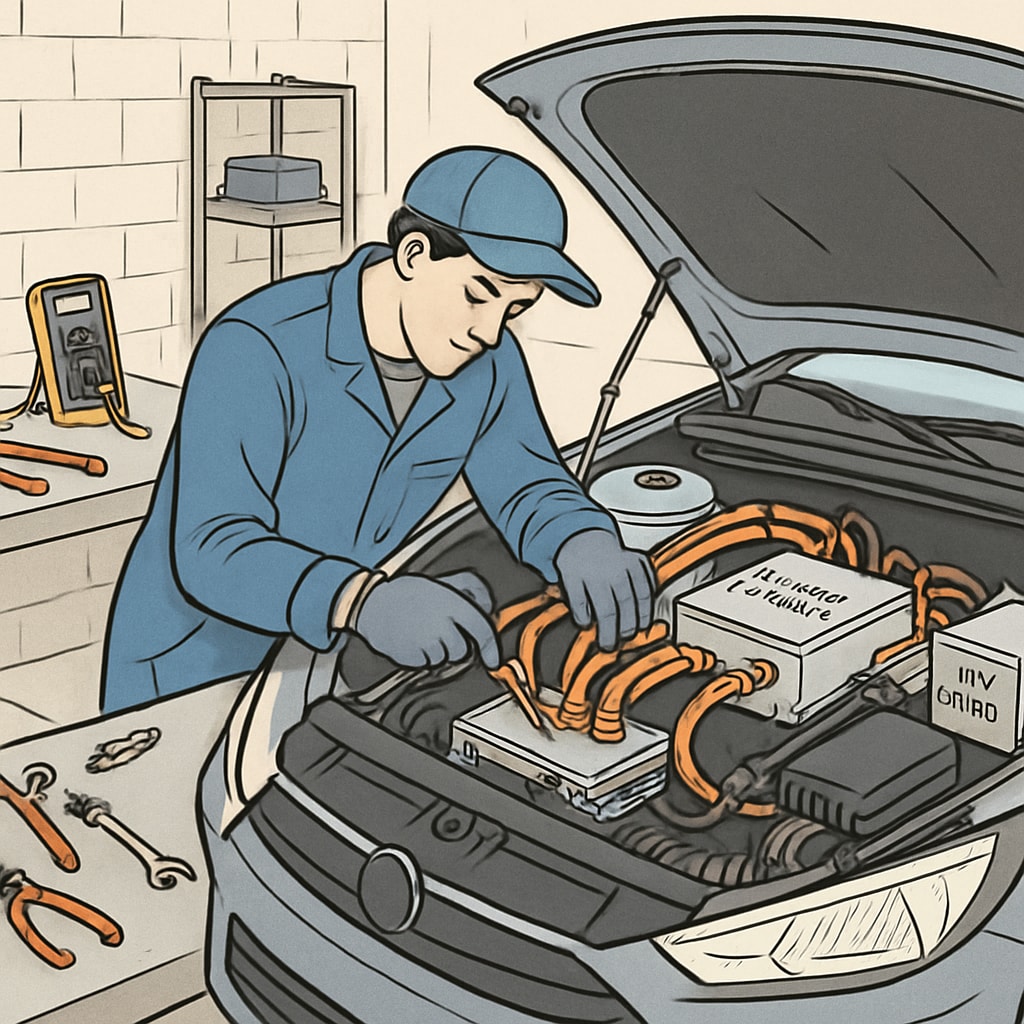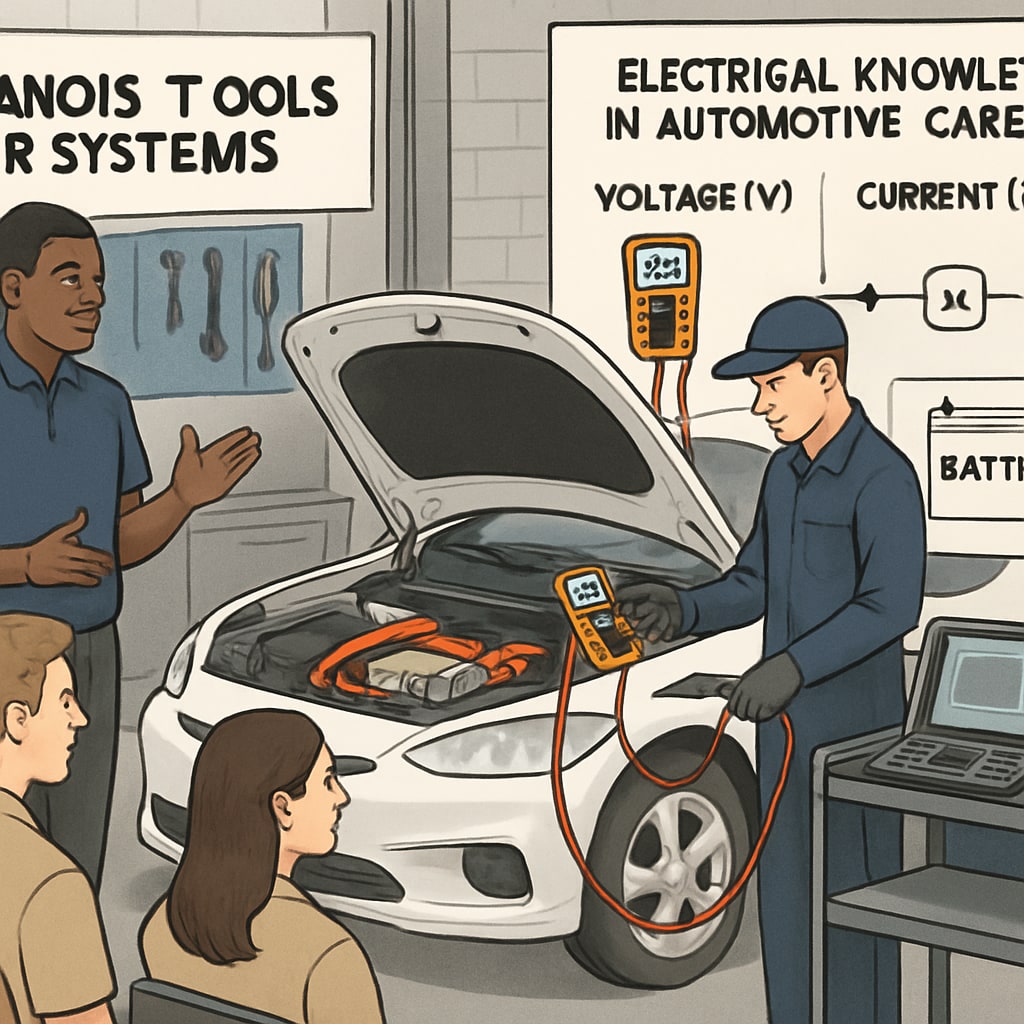As the automotive industry transitions to electrification and smart technologies, professionals with an electrical apprenticeship background gain a unique advantage. The combination of electrical expertise and automotive repair skills positions them for success in a rapidly evolving sector. This article explores how electrical apprenticeship experience can accelerate career growth in the automotive industry, highlighting the synergy between these two fields.
Why Electrical Knowledge Matters in the Automotive Industry
The automotive industry is undergoing a paradigm shift. Electric vehicles (EVs) are becoming mainstream, with manufacturers investing heavily in battery technologies, charging infrastructures, and advanced electrical systems. Knowledge of electrical circuits, power management, and diagnostics is now essential for automotive professionals. An electrical apprenticeship provides hands-on experience in these areas, fostering a deeper understanding of the intricacies involved in modern vehicle systems.

Benefits of Cross-Disciplinary Skills
For individuals with automotive repair qualifications, adding electrical skills can create a powerful combination. This fusion of expertise offers several benefits:
- Enhanced Employability: Employers increasingly seek professionals who can work on both traditional and electric vehicles.
- Higher Earnings Potential: Specialized skills in EV systems often command premium salaries.
- Future-Proofing: As combustion engines phase out, electrical systems knowledge ensures long-term career viability.
For example, a technician skilled in both automotive repair and electrical diagnostics can efficiently address issues in hybrid or fully electric cars, saving time and costs for businesses.
Real-World Applications of Electrical Apprenticeship in Automotive Roles
Electrical apprenticeship training equips professionals with practical skills directly applicable to automotive roles. Key applications include:
- Battery Management: Understanding lithium-ion battery systems, charging cycles, and energy storage solutions.
- Advanced Diagnostics: Using specialized tools to identify faults in electronic control units (ECUs) and sensors.
- Integration of Smart Technologies: Installing and maintaining systems like autonomous driving modules and connected vehicle platforms.
These competencies align with the demands of modern automotive workshops, where technicians must troubleshoot and repair complex electrical and electronic systems.
The Future of Automotive Careers: A Blend of Electrical and Mechanical Expertise
As the automotive sector continues to innovate, the demand for professionals with cross-disciplinary skills will only grow. According to Britannica, electric vehicles are expected to dominate global markets by mid-century, further emphasizing the importance of electrical knowledge. Similarly, Wikipedia highlights the integration of smart technologies in next-generation vehicles.
Electrical apprenticeship experience not only bridges the gap between traditional automotive repair and emerging technologies but also fosters adaptability in a dynamic industry.

To summarize, professionals who combine electrical expertise with automotive skills are poised to lead the industry’s transformation. Their ability to navigate the complexities of electrification and smart systems makes them invaluable assets in an evolving job market.
Readability guidance: This article uses concise paragraphs and lists to improve readability. Active voice is prioritized to ensure clarity, and transitional phrases are included to enhance flow.


